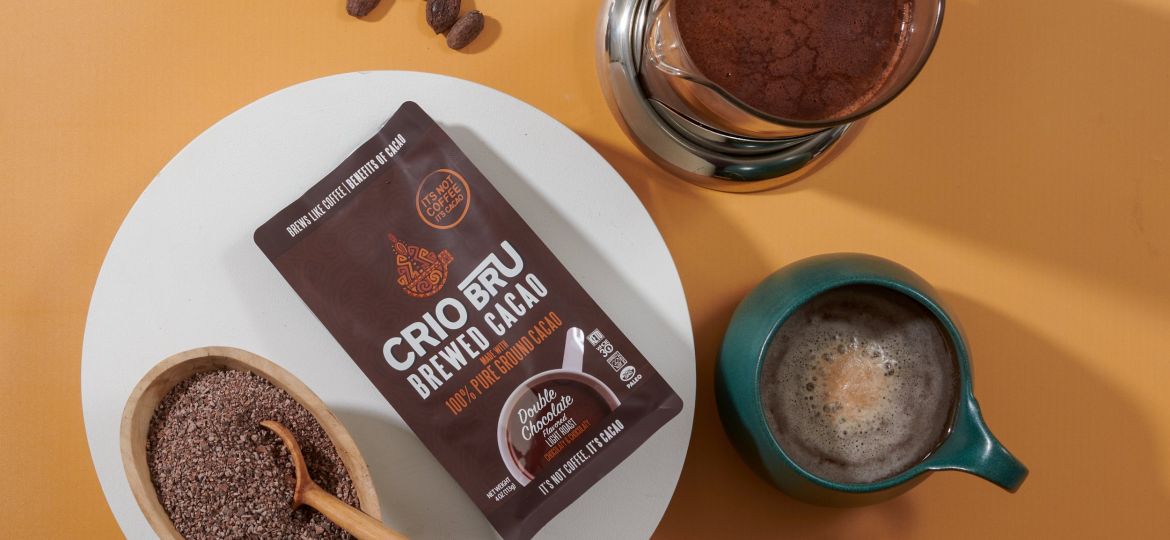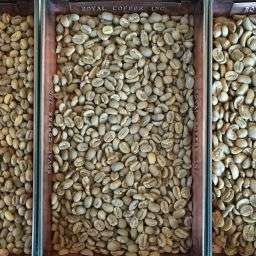
The practice of brewing cocoa beans like coffee represents a fascinating blend of tradition and modern culinary experimentation. Historically rooted in ancient cultures, this method involves the roasting and grinding of cocoa beans, followed by brewing them to create a beverage that is rich in flavor and aroma. In recent years, this practice has gained popularity among coffee enthusiasts and health-conscious consumers alike, seeking alternative beverages that offer both distinct taste profiles and potential health benefits.
Benefits Over Coffee
Brewed cocoa beans offer several advantages over traditional coffee. Notably, they contain lower levels of caffeine, making them a suitable choice for individuals sensitive to the stimulant or those looking to reduce their caffeine intake. Additionally, cocoa is rich in antioxidants and contains a natural compound called theobromine, which provides a gentle, long-lasting boost of energy without the jitteriness often associated with coffee.
The beverage also boasts a rich flavor profile, ranging from deep chocolatey notes to subtle hints of fruit and spices, depending on the beans’ origin and roast.
History and Origin
The use of cocoa beans for brewing traces back to ancient civilizations, such as the Mayans and Aztecs, who revered the cacao tree and its seeds as gifts from the gods. They brewed the beans into a sacred drink used in rituals and as a luxury for the elite. This tradition laid the groundwork for the modern appreciation of brewed cocoa beans, mirroring the ancient practice with contemporary techniques to unlock the beans’ full flavor and nutritional potential.
Cacao vs. Cocoa
The terms cacao and cocoa often confuse, yet they signify different stages of the bean’s processing. Cacao refers to the raw, unprocessed beans harvested from the cacao tree, Theobroma cacao, known for their rich content of antioxidants, minerals, and other beneficial compounds.
Upon roasting, these beans are typically labeled as cocoa, a term also used to describe the powder produced after the beans are processed. This distinction is crucial, as the nutritional and flavor profiles of cacao and cocoa products vary significantly, with raw cacao retaining a higher concentration of healthful elements compared to its roasted counterpart.
Roasting and Grinding
The roasting process plays a pivotal role in developing the flavor profile of cocoa beans, much like it does for coffee. Roasting temperatures significantly influence the beans’ final taste, aroma, and color. Typically, cocoa beans are roasted at temperatures ranging from 100 to 150°C (212 to 302°F), with variations based on the desired flavor complexity and intensity.
The grind size is equally crucial for optimal extraction; a coarse grind is generally recommended for brewed cocoa, similar to a French press grind for coffee. This size allows for a balanced extraction, minimizing the risk of over-extracting bitter compounds while ensuring the full-bodied flavor is adequately extracted.
Brewing Methods
Brewing cocoa beans can be approached through various methods, each offering a unique taste experience. The French press is a popular choice, allowing the grounds to steep directly in hot water, which results in a rich and robust brew. Auto-drip coffee makers, with a permanent filter, can also be used for a more convenient brewing process, yielding a cleaner and smoother drink.
For those preferring a less traditional method, cold brew techniques involve steeping coarse-ground beans in cold water for an extended period (usually 12-24 hours), producing a smooth, mild, and less acidic beverage.
Nutritional Content
Cocoa beans are a rich source of antioxidants, particularly flavonoids, which contribute to reducing oxidative stress and inflammation in the body. They also contain a notable amount of theobromine, a mild stimulant that can improve mood and energy levels without the jitteriness associated with caffeine. Compared to coffee, brewed cocoa offers a unique nutritional profile, with a lower caffeine content and a higher concentration of heart-healthy compounds.
Health Implications
The antioxidants in cocoa, such as catechins and epicatechins, have been linked to a range of health benefits. These include improved cardiovascular health through the promotion of vasodilation and blood pressure reduction, mood enhancement via theobromine’s stimulant effects, and a potential energy boost without the crash often associated with high-caffeine beverages.
Additionally, the magnesium content in cocoa supports muscle and nerve function, further contributing to its health benefits.
Flavor Profile
Brewed cocoa boasts a complex and rich flavor profile that varies widely based on the origin, variety, and roast level of the beans. The taste can range from sweet and nutty to deep and earthy, with notes of fruit, spices, and wood. The roasting process unlocks these flavors, while the brewing method can accentuate certain notes, making each cup a unique sensory experience.
Customizations
To tailor brewed cocoa to personal taste preferences, various customizations can be applied. Adding milk or a dairy-free alternative can soften and enrich the drink’s texture, while spices such as cinnamon, nutmeg, or vanilla can introduce warmth and complexity.
For those with a sweeter palate, natural sweeteners like honey, maple syrup, or agave can be stirred in, enhancing the inherent chocolatey sweetness of the brew. These customizations allow for a versatile beverage that can be enjoyed in numerous ways, catering to a wide range of tastes and occasions.
Morning Rituals
Incorporating cocoa brew into morning rituals offers a gentler start to the day. For those looking to replace or alternate with morning coffee, cocoa brew provides a lower-caffeine alternative that still energizes without the caffeine spike and crash. Begin by brewing a cup of cocoa as you would coffee, enjoying the rich, chocolatey aroma and taste. This can set a comforting tone for the day ahead, especially for those sensitive to caffeine or looking for a healthier morning routine.
Afternoon and Evening
Cocoa brew stands out as a comforting, low-caffeine option for afternoon or evening relaxation. Its mild stimulant effect, thanks to the theobromine content, can offer a gentle lift to overcome the afternoon slump without disturbing sleep patterns. Enjoying a warm cup of cocoa brew in the evening can also serve as a soothing ritual, aiding in relaxation and stress reduction before bedtime.
Crio Bru and Others
Among the popular brands in the brewed cocoa market, Crio Bru stands out for its range of flavors and ethical sourcing. Crio Bru offers a variety of cocoa bean roasts from different regions, providing a spectrum of taste experiences from earthy and spicy to smooth and sweet.
Other brands entering the market also offer unique blends and flavors, focusing on organic and fair-trade beans, highlighting the growing consumer interest in sustainable and health-conscious beverages.
Home Brewing Guide
Brewing cocoa at home involves a few simple steps: roasting, grinding, and brewing. Start with raw cocoa beans, roasting them in the oven at around 120-150°C (248-302°F) for 20-30 minutes, depending on desired darkness. Once cooled, grind the beans to a coarse consistency similar to French press coffee. To brew, use about 2 tablespoons of ground cocoa per cup of hot water, adjusting to taste. Brew using a French press, letting it steep for 4-5 minutes before pressing.
Recipes
- Basic Brewed Cocoa: Mix 2 tablespoons of ground cocoa with 8 ounces of boiling water. Steep in a French press for 4-5 minutes. Adjust the ratio based on personal taste preferences for strength and richness.
- Spiced Cocoa Brew: Add a pinch of cinnamon, nutmeg, or vanilla to the cocoa grounds before brewing. This adds a warm, aromatic complexity to the beverage.
- Cocoa Brew Latte: Prepare the brewed cocoa as described in the basic recipe. Warm and froth your choice of milk or a dairy-free alternative, then combine with the brewed cocoa for a creamy, indulgent drink.
These simple steps and recipes offer a starting point for exploring the rich world of brewed cocoa, providing a delightful and healthful addition to any daily routine.
FAQs
How does the caffeine content in brewed cocoa compare to coffee?
Brewed cocoa contains significantly less caffeine than coffee. While a typical cup of coffee can contain 95 mg of caffeine, brewed cocoa usually offers about 15 mg per cup, making it a gentler alternative for those sensitive to caffeine or looking to reduce their intake.
Is brewed cocoa similar to traditional hot chocolate?
While both beverages originate from cocoa beans, brewed cocoa and traditional hot chocolate differ significantly in preparation and taste. Brewed cocoa is made by roasting and grinding cocoa beans and then brewing them, resulting in a beverage that highlights the beans’ natural flavors without added sugars or dairy. In contrast, traditional hot chocolate typically involves sweetened cocoa powder or chocolate mixed with milk, offering a sweeter, creamier drink.
How should brewed cocoa be stored to maintain its freshness?
To preserve the freshness and flavor of brewed cocoa, store the roasted and ground beans in an airtight container at room temperature, away from direct sunlight and moisture. Unlike coffee, brewed cocoa does not go stale quickly and can maintain its peak flavor for several weeks, especially if stored properly.
Final Thoughts
The journey through brewing cocoa like coffee uncovers a rich tapestry of flavors, health benefits, and cultural significance. From its ancient origins to modern kitchens, brewed cocoa offers a unique alternative to traditional coffee, with lower caffeine content and a wealth of antioxidants.
Whether seeking a morning ritual, an afternoon pick-me-up, or an evening comfort, brewed cocoa caters to a broad spectrum of tastes and preferences, inviting everyone to explore its deep, chocolatey essence. This exploration not only enriches our palates but also connects us to a time-honored tradition of cocoa appreciation.









